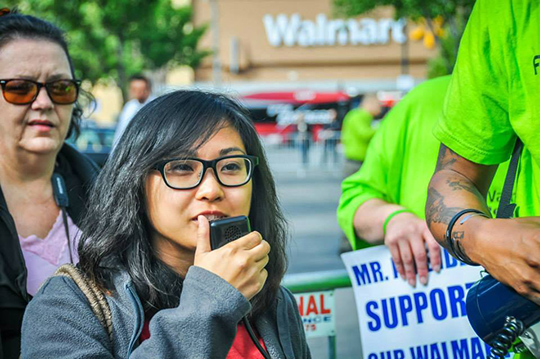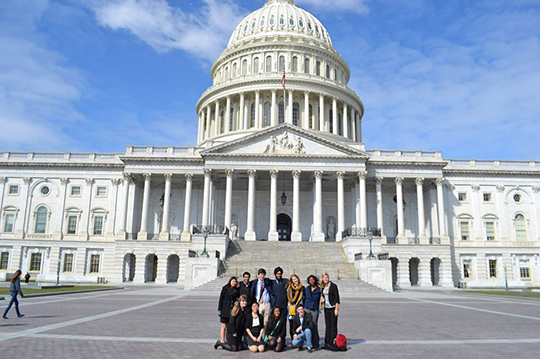Category: Human Rights

Helping refugees rebuild their lives
By Kirsten Willer, ’17 (International Relations)
“Kirsten! I got the job!” Ahmed said excitedly as he walked into the offices of the International Rescue Committee (IRC) on my last day of work this past summer. I had frequently worked with him in the IRC’s Matching Grant employment program, and he had been recently hired as an electrician. I had helped him refine his resume, attend a job fair, submit his job application, and draft follow-up letters, so I had been by his side through the entire process of finding this job.
Through the Spirituality, Service, and Social Change Fellowship, I interned at the IRC in San Jose. The IRC provides essential services to refugees and asylees in the first 90 days after their arrival in the United States. Throughout the summer, I got to offer my support to many people, like Ahmed, as they rebuilt their lives in the United States.
Although finishing my fellowship was bittersweet, I feel incredibly grateful for the experience. Now I’m considering attending law school so that I can help demystify the legal aspects and challenges of the immigration and resettlement process for other refugees, asylees, and immigrants. Working at the IRC was an invaluable experience, in terms of both learning about the immigration system and witnessing the resilience of the human spirit.

“I am more than a slave.”
By Katherine Nasol, ’15 (International Relations)
“I am more than a slave.” A year ago, I spoke with a Filipina teacher who was trafficked to work in a small private day care near Washington DC. She and many others were illegally recruited from the Philippines, coerced to live in cramped quarters, and trapped in a cycle of debt bondage. She said these exact words to describe her current experience in the US.
Her story is not uncommon, as many migrant workers have left because of inequality and lack of employment in their home countries. When many migrants come to their destination, they are met with discriminatory laws that abuse and exploit them and their families. Although this phenomenon is happening globally, there are also many migrant workers who are speaking up and mobilizing against oppressive policies and conditions. I have had the privilege to learn and work with migrant community organizers both here in my home in the Bay Area and internationally. By organizing with grassroots groups and seeing them push for change day by day, I have learned that justice can only be achieved by those who are affected themselves.

Lobbying for human rights
By Jared Naimark, ’14 (Earth Systems)
In 2013, I led an Alternative Spring Break (ASB) trip to Washington D.C. After teaching a 10-week course to 12 fellow undergraduates on international human rights advocacy with my co-leader Emily Witt, we set off for a week-long exploration of our nation’s capital. We met with eight different nonprofit advocacy organizations and one government agency and engaged their staff in provocative discussions centered around the question: How can we get more people to care about international human rights and take action without oversimplifying the causes of or solutions to violent conflict?
With these discussions in mind, our group set off for Capitol Hill. We were nervous and tired, and most of us had never been in a lobby meeting before. But we put on our best clothes, reviewed our notes, and stepped into the congressional offices with confidence. We asked for the US to cut military aid to Rwanda which had been supporting abusive insurgent groups in Eastern Congo, and also asked for human rights benchmarks to be met before the US resumed military to military relations with Burma’s armed forces. After these lobby meetings, our trip was over, but our group’s commitment to transforming human rights advocacy was just beginning. Empowered by the notion that elected officials would actually care what a group of college students thought about human rights, our group was inspired to take what we learned on our trip and apply it to a diverse range of public service causes and pathways.
